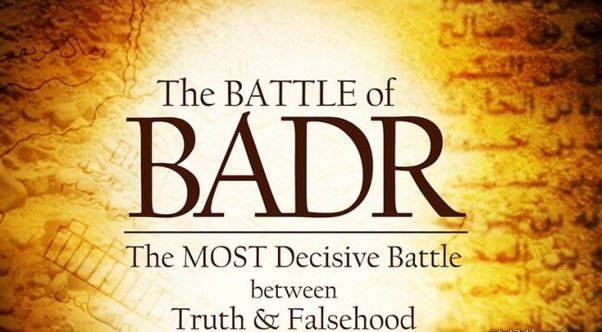“The Battle of Badr is the guide of Islam, The victory of Allah in the great Battle of Badr. It is the courage of the Muslims that identifies them, Islam is life, Islam is a way of life.”
(Alama Iqbal)
The Battle of Badr is one of the most significant events in Islamic history. It took place on 17th Ramadan in the second year of Hijrah (624 CE), and it was the first major military encounter between the Muslims and the polytheists of Mecca.
The battle of Badr holds immense historical and religious significance for the Islamic community. Firstly, it marked the beginning of a new era for the Muslims. It was the first battle in which the Muslims were able to defend themselves against the powerful Meccan army, which had been oppressing them for years. The victory at Badr was a turning point in Islamic history, as it gave the Muslims a sense of pride and confidence, and it demonstrated that Islam was a viable political and military force. the martyrs of the Battle of Badr are highly respected and honored in Islamic tradition, and their sacrifice is seen as a symbol of the unwavering faith and commitment of the early Muslims to the cause of Islam.
Secondly, the Battle of Badr was a test of faith for the early Muslim community. The Muslims were outnumbered, and they were facing an enemy that was far more experienced and better equipped. The victory at Badr was seen as a sign of Allah’s favor, and it strengthened the faith of the early Muslim community.
Thirdly, the Battle of Badr had a profound impact on the Sahabas, the companions of the Prophet Muhammad (peace be upon him). Many of the Sahabas who fought in the battle, such as Abu Bakr, Umar, and Ali, became renowned for their bravery and leadership. The Battle of Badr was also a moment of great sacrifice for the Sahabas, as many of them gave their lives for the sake of Islam.
There were several companions of the Prophet Muhammad (peace be upon him) who were martyred in the Battle of Badr, including some of the most prominent ones such as Hamza ibn Abdul Muttalib, Mus’ab ibn Umair, and Ubaydah ibn al-Harith. These companions are considered to be among the best of the best and are highly regarded in Islamic history.
In Islamic tradition, the families of martyrs are highly respected and honored, and it is considered a duty of the community to provide for their welfare and support them in any way possible. The families of the martyrs of the Battle of Badr were no exception.
According to historical records, the Prophet Muhammad (peace be upon him) and his companions took great care to provide for the families of the martyrs of Badr. They were given financial support, food, and other provisions, and the Prophet himself is said to have personally visited their homes and provided comfort and encouragement.
The Battle of Badr has been celebrated in Islamic history and literature for centuries. Allama Iqbal, a renowned Muslim philosopher and poet, wrote a beautiful poem on the Battle of Badr, entitled “Fazaaye Badr Paida Kar” (Create the atmosphere of Badr). The poem reflects on the significance of the battle and the role of the angels in aiding the Muslims in their victory. The poem also highlights the courage and sacrifice of the Sahabas, who stood firm in the face of adversity.
Here is an excerpt from Iqbal’s poem, with an English translation:
“Faza-e-Badr paida kar, farishtay terey nusrat ko utar saktey hain, Gird-o-gubaar se qataar ander qataar ab bhi.”
“Create the atmosphere of Badr once again, so the angels may descend to assist you, The ranks upon ranks of your supporters can still emerge from the dust and debris.”
Overall, the Battle of Badr remains a symbol of faith, courage, and sacrifice for the Islamic community. Its significance is not limited to the early Islamic period but extends to the present day, where Muslims continue to draw inspiration from the example set by the Prophet Muhammad (peace be upon him) and the Sahabas.
Aubaid Ahmad Akhoon
akhoon.aubaid@gmail.com






